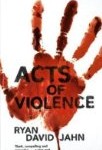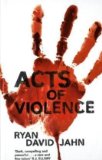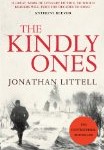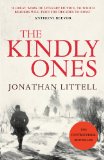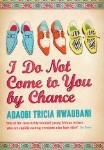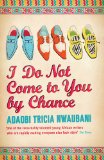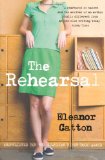I am always on the look out for a good new crime book so when @crimeficreader described Acts of Violence as the best debut of 2009, during a twitter conversation, I decided to read a copy. It’s a Crime! is one of my favourite crime fiction blogs, so if you’re after some more recommendations then head over there!
Acts of Violence is based on the 1964 murder of Kitty Genovese; a crime which over 30 people witnessed, but not one acted to save her life. This crime prompted an investigation into the social psychological phenomenon which became known as the bystander effect and this book takes a look at the reasons behind their inaction – why did so many people ignore her cries for help?
The book begins by focusing on Katrina (the fictional character based on Kitty). We follow her journey home and witness the attack:
It – he – seems to be pulled toward her, like a yo-yo on a string, seems to glide toward her rather than walk. She doesn’t notice the sort of lumbering broken-machine flump-flump-flump a man walking normally has when he shuffles from one place to another. He just floats toward her menacingly.
The book then flipped between various characters living in the surrounding appartments. We hear of their problems (ranging from a woman who thinks she has just run over a baby, to a suicidal Vietnam draftee and a man looking after his dying mother), but I struggled to believe that so many people in such a small area were all facing critical points in their lives at exactly the same moment. The number of violent acts taking place also seemed unrealistic to me.
The large number of characters meant that we could only glimpse into their lives, never having the chance to really get to know them. It was an interesting explanation of the bystander effect, but I would have found it more realistic if the characters had been normal people who were simply too tired or confused to phone the police.
The book was fast paced and gripping throughout, but the numerous story threads meant that the book felt disjointed to me. It was a glimpse into a few hours of their lives, but I was left wanting to know more – how they felt once they’d heard of the crime and whether they really knew what was going on.
I’d recommend this to fans of crime fiction who don’t mind books without a mystery to solve.
The thoughts of other bloggers
…the most outstanding novel I have read this year. It’s a Crime!
…doesn’t leave enough room to truly explore all the issues it raises. Follow The Thread
This is an excellent, thought provoking novel… Hack Writers
